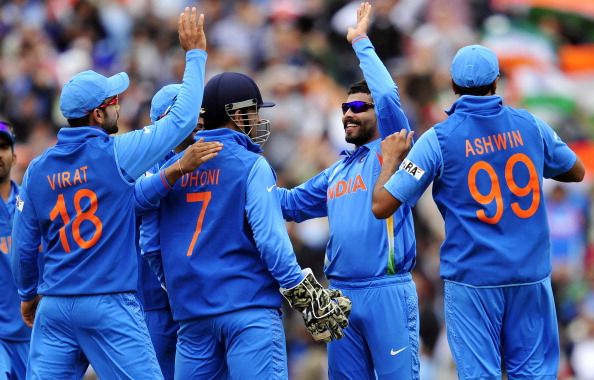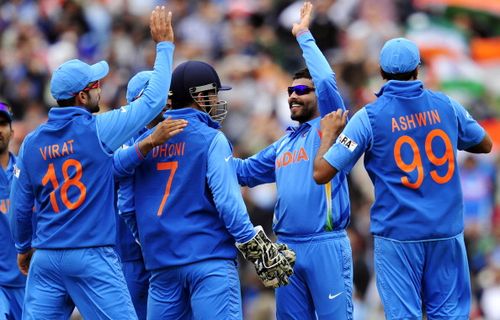
When the Indian cricket team gave way to ‘Team India’

The 2001 Eden Gardens Test match in many ways is a landmark for Indian cricket. It was at this juncture that India asserted themselves both in spirit and in cricketing skills. In Sourav Ganguly’s own words, “that Test match changed the whole psyche of Indian cricket”. One thing is for sure: the foundation for Team India – a term coined to describe the cohesive resilient unit that Indian cricket team was to become later on – was laid at this remarkable stadium and in that historic match.
Team India has a new found verve about it, not very dissimilar to the one Ganguly’s men had in the 2002 version of the same tournament. As India get ready to face the Sri Lankans tomorrow, let’s relive another semi final from the 2002 edition of the Champions Trophy that confirmed the arrival of ‘Team India’. On its course to the semi finals, the Indian team under Sourav Ganguly had thrashed Zimbabwe and England emphatically, with the win over England coming with a margin of 10 wickets.
Ganguly was handed over the reins of a new-look, young team about a year and a half before this match. In hindsight, he was the gallant captain India required at that stage. For too long, India had been a decent, ‘soft’ cricketing nation. It had clinched a World Cup and won some other prestigious trophies along the way but never really strolled like a serious threat. Throughout the 90s, getting Sachin Tendulkar’s wicket won you half the match. There were excellent individuals like Azhar and Jadeja but India couldn’t evolve into a team that others would like to beat.
Sourav Ganguly changed all that. He came from an opulent family in Kolkata (they call him ‘the Prince of Kolkata’) and seemed to carry a certain brashness with him. Indian teams often were guilty of being too soft in cricketing attitude and Sourav was just the man who could catapult India out of such mediocrity. The best thing was that he did it all by example. He found it convenient to irritate Steve Waugh, making him wait for the toss. Getting involved in a banter with the opposition players didn’t bother him at all. Although these were traits very different from the ones usually seen in Indian cricketers, they laid a strong foundation for the formidable team that India was to become later.